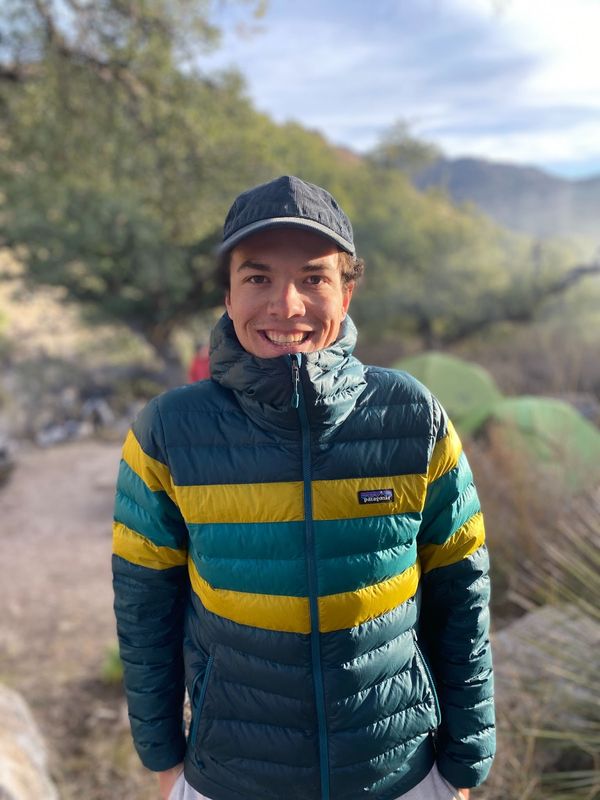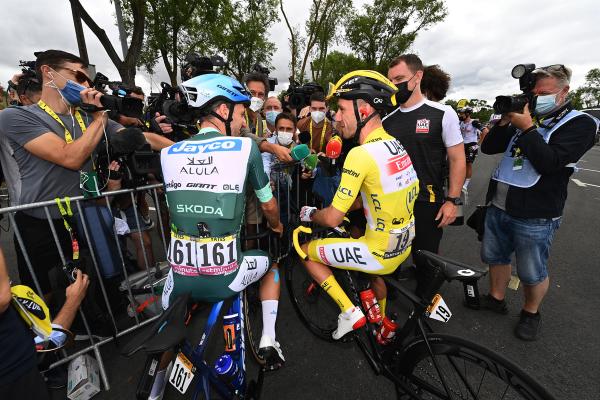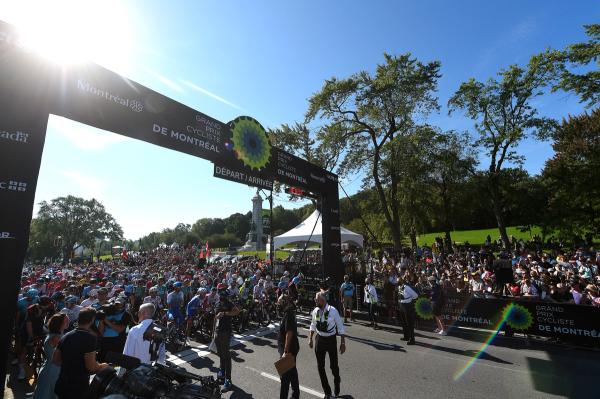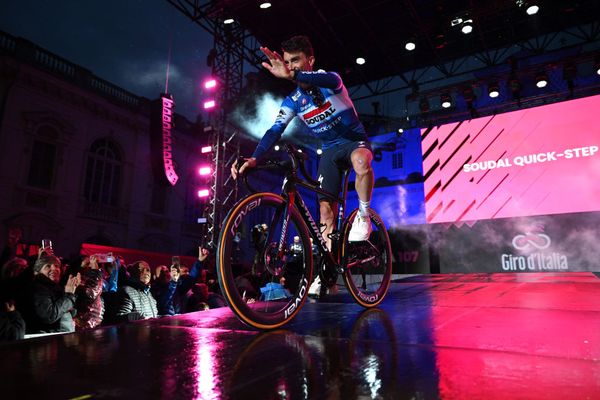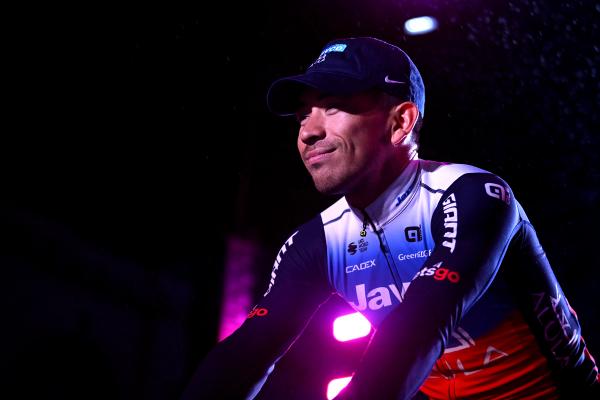GP Quebec preview: a gambler’s classic on the other side of the Atlantic
All you need to know about one of the WorldTour's most open one day races
Logan Jones-Wilkins
Junior Writer - North America
© Velo Collection (TDW) / Getty Images
Benïot Cosnefroy won the 2022 GP Quebec. He's back again in 2023
With a long season already in the legs of the peloton, you would be forgiven for thinking of the Canadian World Tour races of Grand Prix de Cycliste de Quebec and Montreal as something of a last chance saloon in the sweeping narrative of the season. Far away from the big one day titles of the Spring and many weeks after the Worlds, the pair of races could be running out the clock for a year that – pending the results of the Vuelta and Il Lombardia – is settled.
But cycling is not like most other sports. In the cycling calendar, even without a crescendo or playoff tournament to crown the ultimate winner, any race to win in this day and age is a good race to win. Instead of being an afterthought, the GP Quebec and GP Montreal titles would be a bright red cherry on top to any rider's season, regardless of the Worlds placement.
This weekend, with hot humid September weather on tap in Canada, the summer cycling season is still in session. Here is what you should expect this Friday for the GP Quebec.
The course
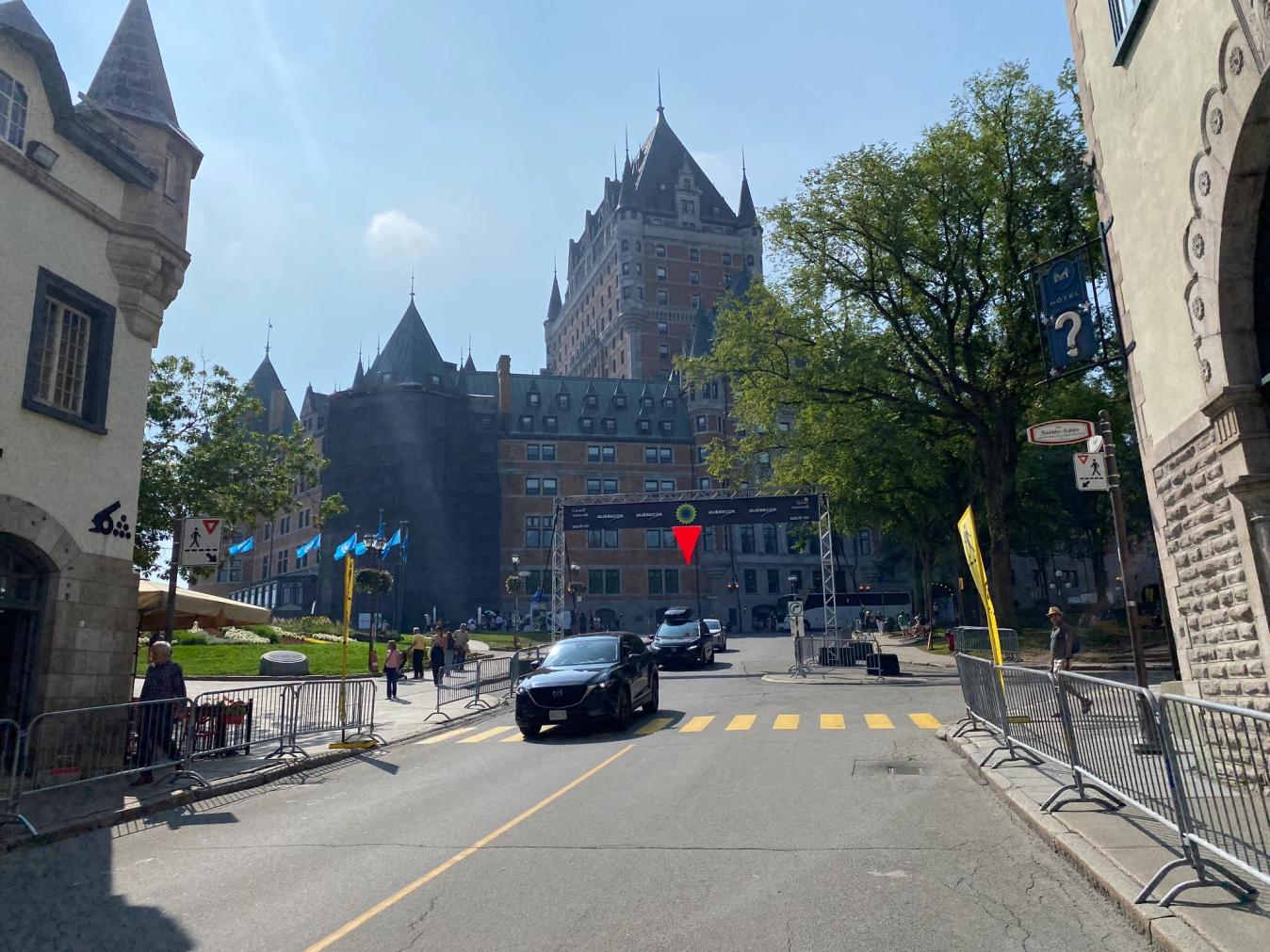
Logan Jones-Wilkins
The 1km to go banner the day before the big show
Up the river from Montreal, Quebec City sits on a perch over the St Lawrence river as it opens up and forges its path to the Atlantic Ocean. With its bluffs looking out over the river, the fortified walls of Old Quebec offer a European circuit in one of North America’s two WorldTour races.
Yet the GP Quebec is not a copy of any race in Europe, just as Quebec’s old city is not a copy of Europe’s main attractions. It has its own unique flare and layout to provide different racing at the tail end of the season. Normally, with the World Championships traditionally in late September, the Canadian one days are a prelude to the championships with the circuit race format mirroring World's courses of recent years.
In Quebec the circuit is 16 laps of a 13 km-long circuit, each lap containing a couple of climbs that fall in pretty rapid succession. None are over a kilometre in length, but each averages around 10% all the way to the top. While the loop is in the very centre of the city, the course is quite different from the 14km circuit around Glasgow that we saw at the UCI World Championships in August or in Flanders in the spring.
Instead of being a tight course like Flanders of the circuit in Glasgow, GP Quebec has some fundamental landmarks and course sections that make the event much more oriented around teamwork over the individualistic strength needed at a race like Worlds or even Flanders. For a rider like Nielson Powless (EF-Education EasyPost), this change means a lot for the way he approaches the event.
In races like Flanders there is more of an opportunity to catch people off guard from a long ways out, while these races are less tactical,” Powless told GCN. “In the cobbled Classics, those races depend on each individual's ability to move through the bunch because you can't always be as a team.”
“But here you have a big straight road by the water leading into the final few climbs where you can use a full team to showcase the strength of a team in crunch time, as opposed to a single rider's ability to float through the peloton and make an attack when it feels instinctive. Here It is a bit more like there are two places: the last kicker with 2km to go or the finishing sprint.”
While Powless’s description might skip over the beauty of the fields around the cities grey stone walls at the start of the lap and the splendour of Quebec’s old city, from a racing perspective, he is right. The lap is very much a tale of two halves. The first is screaming fast and mostly flat, while the second section winds through the twisting lanes around the European-style buildings that are more reminiscent of Madrid than Montreal.
Beyond just the number of turns and the particular hills, the race's location in North America itself has some bearing on the race, as one of the pre-race favourites Matej Mohorič (Bahrain Victorious) told GCN before the race.
“The roads are wider here,” Mohorič said. “In Europe, the more in front you are the better it is. Position seven is better than position 22. Position 22 is definitely better than 47. Position 47 is definitely better than 180. Here, this is not the case.
“You need to first recognize how to save energy, and you have many laps to figure it out but you need to figure it out quickly because if you waste two or three laps you could have two or three wasted bullets that you wasted compared to someone who figured it out early.”
“It can be that you are at the back of the peloton and then suddenly you come to the front and are in the mix to win the race. There’s a lot of race craft involved.”
The contenders
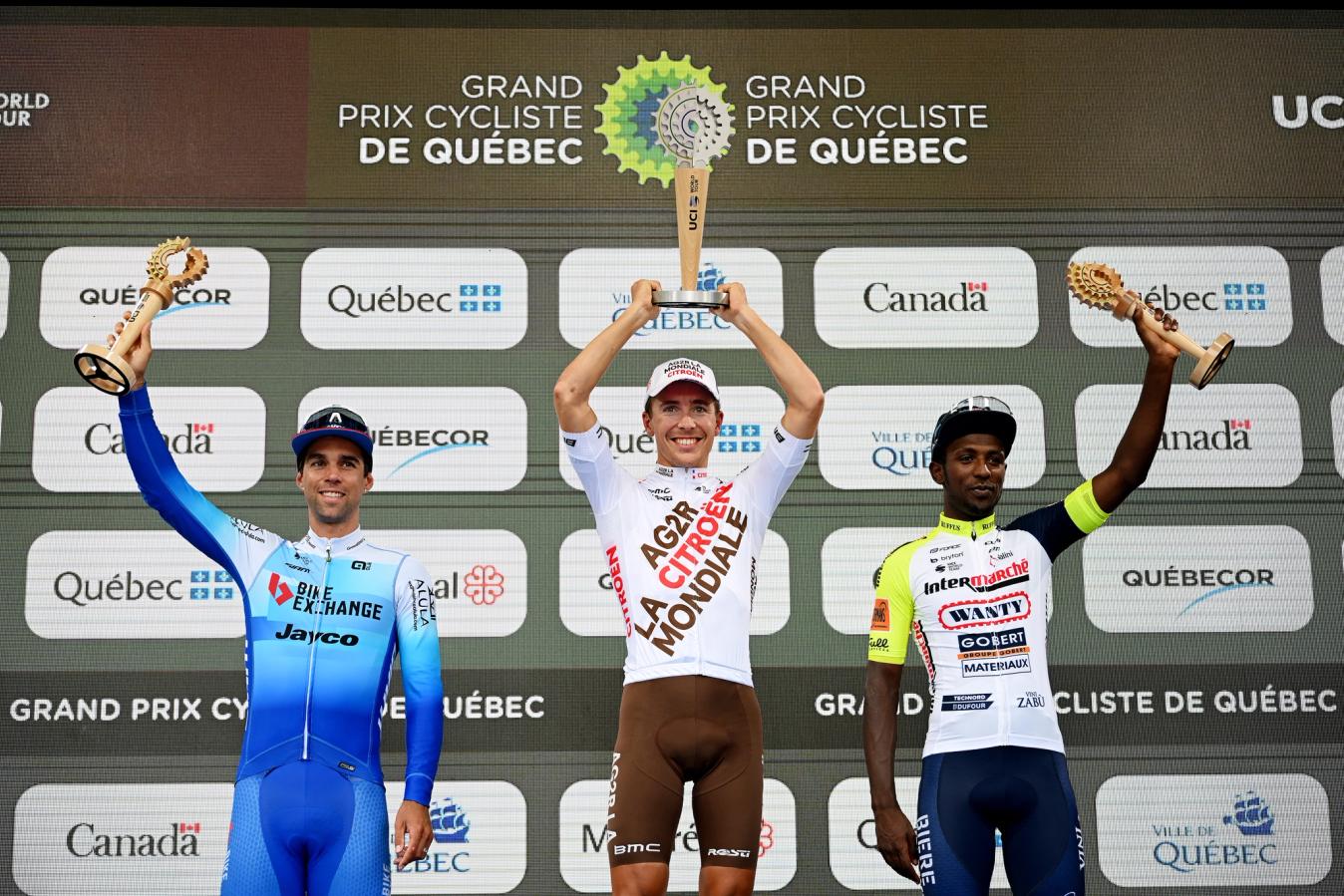
© Velo Collection (TDW) / Getty Images
The podium finisher last year are all back for 2023
While the GP Montreal is more selective, the GP Quebec serves as one of the most open races in the whole calendar. Depending on the day, the list of possible winners is really long. Considering the diverse set of winners thus far in the race's short history opens up a proverbial can of worms in considering who could claim the title this year.
Yet, to start, it's best to look no further than the only man on the startlist who has won the race twice: Micheal Matthews (Jayco-AlUla). While the Australian has had a bit of a low-key year by his standards, Matthews will be certainly ready to try and take a record setting third win in Quebec City. Last year’s winner Benîot Cosnefroy (AG2R-Citöen) was able to beat Matthews last year and is back to try and defend his title while Biniam Girmay (Intermarché-Circus-Wanty) is also returning after he rounded out the podium.
Powless and Mohorič will both be leading options for the attackers, with other names like Julian Alaphilippe (Soudal-Quick Step), Tim Wellens (UAE Team Emirates), Victor Lafay (Cofidis), Valentine Maduas (Groupama-FDJ), Derek Gee (Israel-Premier Tech), Alberto Bettiol (EF Education-EasyPost), Michał Kwiatkowski (Ineos grenadiers), Matteo Jorgenson (Movistar) and Mattias Skjelmose (Lidl-Trek).
Nevertheless, Quebec is often a sprint and the list of fast finisher is equally long, lead by Arnaud De Lie (Lotto-Dstny), Christophe Laporte (Jumbo-Visma), Ethan Hayter (Ineos Grenadiers) and Corbin Strong (Israel-Premier Tech).





.jpg?w=600&auto=format)





